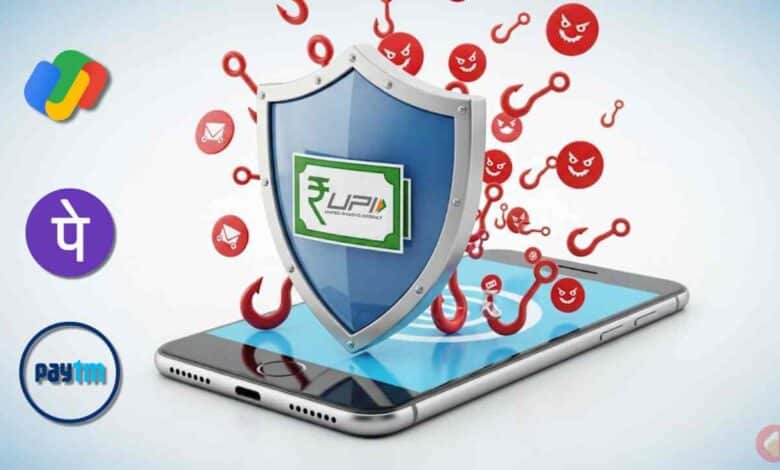UPI Fraud Protection: NPCI’s New Guidelines to Keep Your Money Safe

UPI Fraud Protection: In the current era of digital transactions, the Unified Payments Interface (UPI) has made our lives significantly easier. However, with this convenience comes the increased risk of digital fraud. To enhance the financial security of the general public and prevent digital scams, the National Payments Corporation of India (NPCI) has recently issued several new and crucial guidelines. It is essential for every UPI user to be aware of and adhere to these guidelines.
Let’s delve into the details of these new rules and understand how they can help keep you safe.
Key Guidelines and Changes
NPCI has introduced a series of changes primarily focused on strengthening user security. The most significant of these are:
- Beneficiary Name Verification: Until now, the name displayed on the screen during a UPI transaction might not have been the recipient’s real name. Scammers often exploited this by using names of famous companies or individuals to deceive people. A major change is coming from June 30, 2025. From this date, before you send money, the screen will display the recipient’s actual name as registered with their bank account. This will allow you to be certain about who you are sending money to, significantly reducing the chances of falling for fraud.
- Deactivation of Inactive UPI IDs: Many people forget to de-link their old mobile numbers from their bank or UPI apps after changing them. Telecom companies can reassign these old numbers to new customers after 90 days of inactivity. This could potentially give the new owner of your old number access to your UPI ID, which is a major security risk. To address this, NPCI has directed that all UPI IDs that have been inactive for over a year will be automatically deactivated, thereby enhancing the security of your account.
- Restriction on the ‘Collect Payments’ Feature: The ‘Collect Payments’ or request-money feature has been widely misused by fraudsters. They would send payment requests under the guise of sending money, and as soon as the user entered their PIN, money would be debited from their account. To curb this type of fraud, NPCI is restricting this feature to verified merchants only. For peer-to-peer (P2P) requests, the maximum limit has been set to ₹2,000.
- Control on Non-Financial Transactions: Fraudsters often repeatedly used non-financial APIs, like balance checks, to try and gather information about your account. To stop such activities, NPCI has now set a daily limit on requests like balance inquiries.
Additional Essential Tips for Staying Safe
In addition to these new guidelines from NPCI, it is also crucial to adopt some general precautions to ensure secure digital transactions:
- Use Trusted Apps: Always use popular and trusted UPI apps (like BHIM, Google Pay, PhonePe, Paytm). Do not download apps from unknown sources.
- Do Not Share PIN and OTP: Remember, your UPI PIN, password, or OTP are highly confidential. Never share them with anyone, not even with someone claiming to be a representative from a bank or any other organization.
- Don’t Be Hasty: Scammers often create a sense of urgency. Stay calm during transactions and verify all details carefully before sending money.
- Avoid Clicking on Unfamiliar Links: Refrain from clicking on any unknown links sent under the pretext of lucrative offers or rewards.
- Enable Alerts: Keep SMS and app notification alerts for all transactions turned on. If you notice any unusual activity, immediately contact your bank or the customer service of your payment app.
By following these guidelines and precautions, you can significantly reduce the risk of digital fraud and use UPI with peace of mind.

